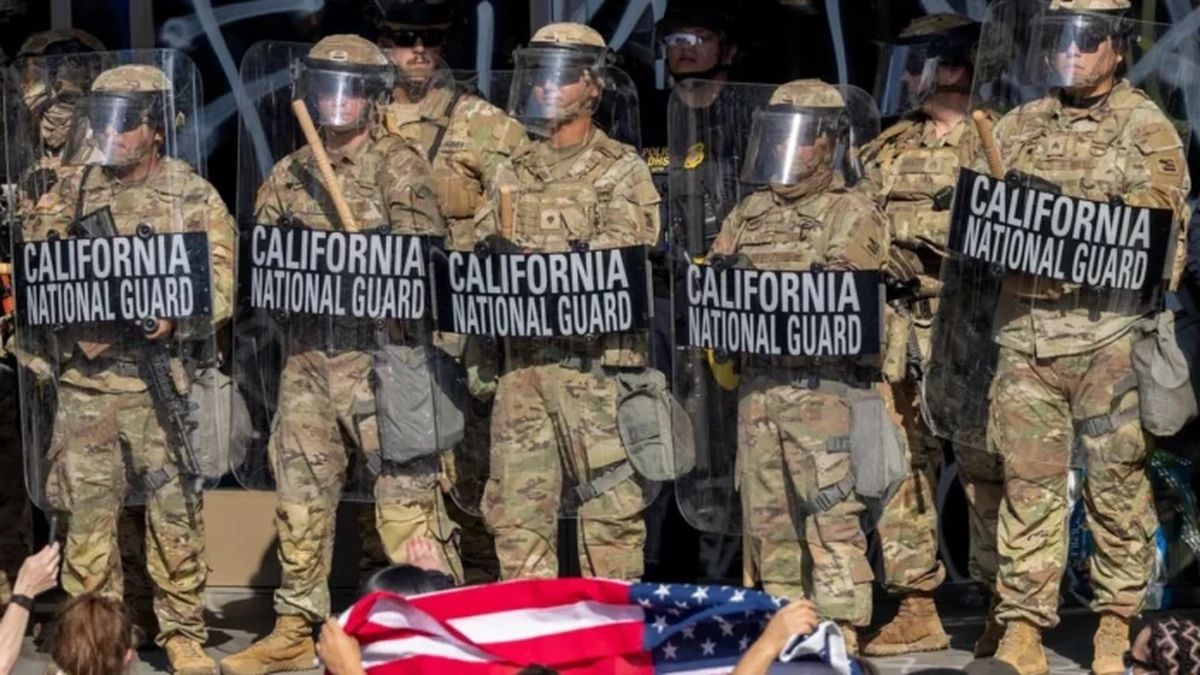So, you’re seeing headlines about National Guard deployment. Maybe it’s for disaster relief, maybe it’s for something else entirely. But what does it actually mean? It’s not just a headline; it’s a complex web of legal frameworks, political considerations, and, most importantly, the lives of the guardsmen and women involved. Let’s dive in, shall we? Because honestly, understanding the ‘why’ behind these deployments is more crucial than just knowing the ‘what’.
The Legal Labyrinth: Understanding the Authority
Here’s the thing: the authority to deploy the National Guard isn’t a simple, one-size-fits-all deal. It’s a tangled mess of federal and state laws. I initially thought it was straightforward, but then I realized the layers of complexity involved. According to Title 32 and Title 10 of the US Code, the President can activate the National Guard for federal missions. States’ governors also have authority to deploy their National Guard units for state active duty (SAD) during emergencies such as natural disasters or civil disturbances within their respective borders. Understanding the interplay between these authorities is key to understanding the scope and limits of any given deployment.
Think of it this way: If the federal government needs support – say, for a national security event – the President can call up the Guard. But if a state needs help with a hurricane, the governor is in charge. This dual role is what makes the National Guard so unique, and also what leads to occasional confusion. We have to know the difference between what is happening at a federal level and how it is different from state level.
Beyond Disaster Relief: The Evolving Missions
Most of us probably associate the National Guard with disaster relief – images of guardsmen rescuing people from floods or providing aid after hurricanes. And that’s a big part of what they do. However, their missions have expanded significantly over the years. What fascinates me is the increasing use of the Guard for things like cybersecurity support, border security, and even assisting law enforcement with civil unrest. National guard units are now taking on a variety of missions for different states.
This expansion raises some important questions. Are these missions appropriate for a force that’s primarily intended to be a reserve component of the Army and Air Force? Are we stretching the Guard too thin? These are questions we need to be asking, especially as the demands on the military continue to grow. The evolving role of the National Guard should not be understated and more analysis must be done in order to fully grasp it.
The Human Cost: What Deployment Means for Guardsmen & Women
Let’s be honest, deploying isn’t just a matter of moving troops from point A to point B. It has a profound impact on the individuals involved and their families. Most National Guard members are citizen-soldiers – they have civilian jobs, families, and lives outside of their military service. A sudden deployment can disrupt everything. I have a friend who’s a teacher and a guardsman, and every time there’s talk of deployment, it throws his whole life into uncertainty.
The emotional toll, the financial strain, the career disruptions – these are all real consequences that often get overlooked in the headlines. We need to remember that behind every deployment order, there are real people making sacrifices. It is up to military leadership to ensure the proper care and preparation is taken before such a deployment takes place. You should read more about the importance of guard deployment .
Political Football: The Politics of Deployment
Unfortunately, National Guard deployments have become increasingly politicized. Governors have used the Guard for political purposes, such as border security missions that critics argue are largely symbolic. This raises serious concerns about the proper use of the military and the potential for abuse. It is hard to understate just how much political pressure can be placed on National Guard units.
We need to be vigilant about ensuring that the Guard is not used as a political tool and that deployment decisions are based on legitimate needs and sound judgment. Holding our elected officials accountable is essential. As per usual, understanding the politics behind the decision is critical to understanding the motives.
Looking Ahead: The Future of the National Guard
So, what does the future hold for the National Guard? Given the increasing demands on the military and the evolving nature of threats, it’s likely that the Guard will continue to play a vital role in both national defense and domestic security. The future deployments of the National Guard will change and mold society.
But it’s also crucial that we address the challenges facing the Guard, including the need for better funding, equipment, and training. And most importantly, we need to ensure that guardsmen and women are properly supported and cared for, both during and after deployment. Let me rephrase that for clarity: supporting and ensuring the overall health and well being is key to the future success of the Guard. We must be sure to invest in the future of the National Guard.
FAQ About National Guard Deployments
What triggers a National Guard deployment?
Deployments can be triggered by a variety of events, from natural disasters and civil unrest to national security threats. It depends on whether it’s a state or federal mission.
How are National Guard members notified of a deployment?
Typically, they receive a mobilization order through their chain of command. This order will specify the date, time, and location of reporting, as well as the duration and purpose of the deployment.
What kind of training do National Guard members receive before deployment?
It varies depending on the mission, but generally includes basic military skills, specialized training related to the specific task, and cultural awareness training.
Do National Guard members receive the same benefits as active-duty soldiers when deployed?
Yes, while deployed on federal active duty, they’re entitled to the same pay, allowances, and benefits as their active-duty counterparts.
What happens to a guardsman’s civilian job when they’re deployed?
The Uniformed Services Employment and Reemployment Rights Act (USERRA) protects their civilian employment rights, ensuring they can return to their job after deployment.
Where can I find more information about National Guard deployments?
The National Guard Bureau website ( nationalguard.mil ) is a good place to start. You can also contact your local National Guard unit for specific information.
The National Guard isn’t just a military force; it’s a reflection of our communities and our values. Understanding its role, its challenges, and its impact is essential for informed citizenship. The National Guard will continue to play a critical role in the United States and abroad.





